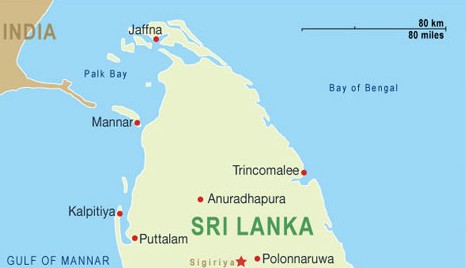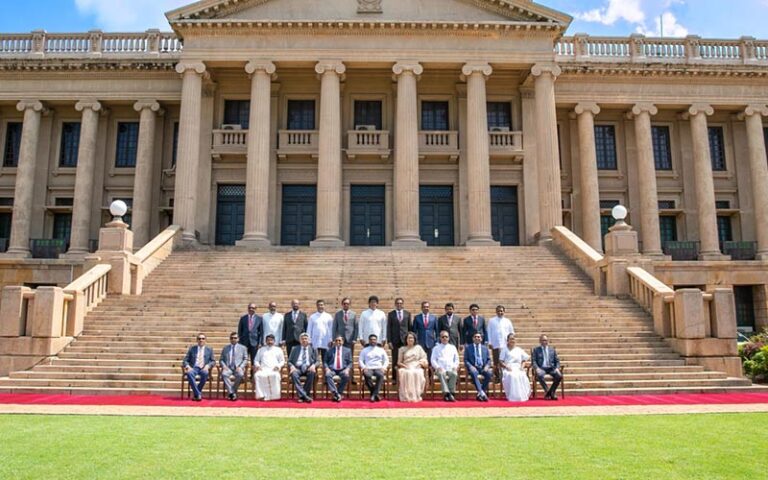Ambassador Amza tells European Parliament that Sri Lanka is concern about the continuation of selective adoption of country specific action driven by electoral compulsions
Sri Lanka’s Head of Mission to the European Union, Ambassador Amza addressing the meeting of the European Parliament’s Delegation for Relations with the Countries in the South Asia (DSAS) on 19 February 2014, said ” Sri Lanka is concerned about the continuation of selective adoption of country-specific actions in the HRC, driven by electoral compulsions of some Member States, as these efforts can erode the credibility and impartiality of the Council. Sri Lanka categorically rejected the previous two Resolutions adopted by the Council in March 2012 and 2013, respectively, as they were a result of a politicized and ill-conceived process, that polarized the membership of the Human Rights Council. It was in contravention of the UN General Assembly Resolution 60/251, as well as the Human Right Council Resolutions 5/1 and 5/2 which call for cooperation and genuine dialogue as well as impartiality in the method and conduct of the work of the Council. However, notwithstanding our rejection of the resolutions, the Government is continuing with its genuine and credible commitment to the reconciliation process within the framework of its own mechanism, the National Plan of Action on the implementation of the recommendations of the LLRC. We believe the Universal Periodic Review (UPR) process is the best mechanism to engage with countries on all human rights issues in an equal and fair manner”.
Ambassador made the above remarks during the discussion, in EU Parliament on the subject “Sri Lanka: state of play ahead of the March 2014 session of the UN Human Rights Council”. Ambassador further said “Although it was stated that these Resolutions on Sri Lanka are to help and encourage Sri Lanka to achieve reconciliation and durable peace, it serves the exact opposite. The conflict affected every aspect of Sri Lankan life. Unfortunately, we in Sri Lanka, during the conflict, did not see relentless efforts by certain countries to “Bring the global spotlight on Sri Lanka” , through resolutions, or INGO publishing reports, or TV Channels with the sinister motives, airing documentaries episode after episode, coinciding with important events related to Sri Lanka, to help the country and encourage her. All those who are on a crusade against us were in a deep slumber then. Today, part of the international community seems to be in a rush to pronounce judgements on Sri Lanka which are preposterous. Their patience is said to be wearing out and are of the view that only intrusive measures and ultimatums would yield results”.
Ambassador criticized a section of the International Community for being prejudice stating “They have already prejudged that our own efforts are insufficient and substandard to resolve the unprecedented issues and challenges that we had to face at the end of the conflict. We have proven them wrong by resettling almost all 297,000 IDPs, clearing over 98% of areas identified for demining, rehabilitating 11,758 ex-combatants including all 594 child soldiers, providing livelihood support to the returnees and rehabilitees/beneficiaries, rebuilding the North with over US$ 3 billion worth investments, phasing out security presence and withdrawal of HSZs, holding elections even in the former theatres of conflict, establishing civilian administration and institutions, maintaining a healthy economic growth, and also, embarking on a domestic process of reconciliation just an year after ending the conflict, and the painstaking efforts taken since July 2012, to implement the recommendations. Regrettably, there is greater reluctance to acknowledge what the country has achieved with its limited resources, but with the unlimited desire and will, to do what is right for the country”.
He further said “All our proponents seem to have one element in common. They are all heavily relying on “unsubstantiated” and “unproven” allegations coming from so called “reliable and independent sources”, whose integrity are often severely compromised. Based on these misinformation, they have arrived at the sweeping conclusion that “Sri Lanka is not doing enough”. Some, despite being invited, decided not to help the domestic process, as they were prejudicial of the eminence of our Commissioners, the adequacy and independence of the mechanisms and procedures adopted within Sri Lanka”.
While commenting on the selective approach targeting Sri Lanka, the Ambassador said “we have not seen these entities and self-professed experts criticising other similar Commissions of inquiries elsewhere, and casting doubt why those Commissions still struggle, even to come out with a report, leave aside ‘road maps’ or ‘plan of actions’. Why not tell them also “It is Time for Action”. “The stoic silence of our critiques on such matters will speak in volumes of their hypocrisy and unprofessional approaches to bully selected countries while allowing free reign to others”, the Ambassador told EU Parliament.
Full Statement of the Ambassador
Embassy of Sri Lanka
Brussels
19 February 2014







